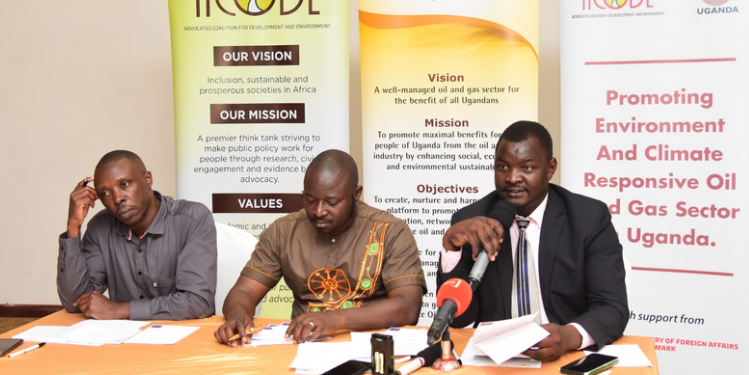By CHIMPREPORTS
By Happy Christine
ACODE, in partnership with the Civil Society Coalition on Oil and Gas (CSCO), have highlighted critical outcomes of COP 28 and their implications for Uganda.
The civil society organizations jointly stressed the urgency of transforming COP 28 decisions into tangible realities, emphasizing a comprehensive review of Uganda’s energy sector policies, laws and regulations to align them with the commitments outlined in the Energy Transition Plan.
One of the key recommendations put forth by the Civil Society is the development of a robust funding mechanism for the Energy Transition Plan. Recognizing the indispensable role of financial resources in achieving such ambitious goals, they underscored the necessity of mobilizing financing for a just energy transition. This includes securing additional funds for climate actions such as adaptation and resilience, essential elements for the success of Uganda’s sustainable-energy-endeavors.
In addition to financial considerations, the civil-society-organizations called for the design of strategies ensuring a participatory, fair, and inclusive implementation of the Energy-Transition-Plan. They emphasized the need for active involvement from diverse stakeholders to guarantee the plan’s success on multiple fronts.
During the press conference, there was a notable emphasis on the role of civil society in addressing equity and affordability challenges in the global transition to clean energy. The organizations advocated for the localization of energy transition mechanisms, urging the government to address the pressing issue of energy poverty as an integral part of the broader plan.
Paul Twebaze, a research associate at ACODE, brought attention to the challenge of inclusivity in Uganda’s energy transition. He highlighted the difficulty of explaining the need for energy transition to those in rural areas who walk substantial distances daily to fetch firewood. Twebaze stressed the necessity for active participation by Ugandans in the development of the Energy Transition Plan.
Mobilizing financing emerged as a critical aspect of Uganda’s journey towards sustainable energy. Anthony Wolimbwa, the national coordinator of CCAN Uganda, questioned the feasibility of addressing issues like energy and income poverty for low-developing countries, when the pledged 100 billion dollars per year to combat climate change remains elusive.
Uganda showcased its unwavering commitment to combating climate change by launching the energy transition plan at the Uganda Pavilion in collaboration with the International Energy Agency at COP 28. However the civil-society-organizations punched holes in these initiatives, saying that it lacked inclusiveness because most Ugandans didn’t participate in this plan.
Looking ahead, Uganda faces the challenge of translating the ambitious goals set at COP 28 into concrete actions. Aligning future NDC reporting with COP 28 outcomes, reviewing energy sector policies, laws, and regulations, and establishing a funding mechanism are crucial steps towards ensuring the success of the Energy Transition Plan.
In conclusion, Uganda’s commitment at COP 28 must extend beyond rhetoric, materializing in concrete actions and financial allocations. The UAE Consensus, with its ambitious targets and financial pledges, stands as a guiding blueprint for Uganda’s next round of NDCs, steering transformative domestic legislation and policies. Uganda’s journey not only contributes to the global fight against climate change, but also sets a precedent for other nations in the pursuit of a sustainable and resilient future.








Discussion about this post